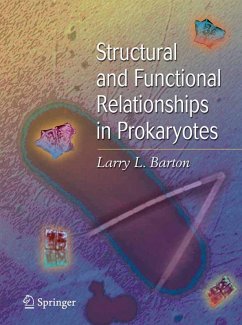Dieser Download kann aus rechtlichen Gründen nur mit Rechnungsadresse in A, B, BG, CY, CZ, D, DK, EW, E, FIN, F, GR, HR, H, IRL, I, LT, L, LR, M, NL, PL, P, R, S, SLO, SK ausgeliefert werden.
"The book of Larry L. Barton represents a successful review ... . provides an exhaustive overview of the scientific information necessary for understanding the physiology ... . The perspectives of six world-famous bacterial physiologists ... stimulate students' discussion leading them toward the integrative approach of the comparative physiology. As stated by the author, the information presented in the book is intended to build on a background that students receive from introductory courses of microbiology, cell biology, genetics and biochemistry." (Diego Mora, Annals of Microbiology, Vol. 55 (3), 2005)









